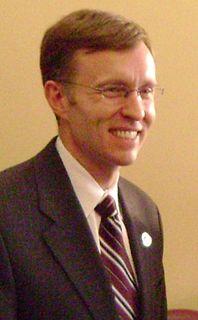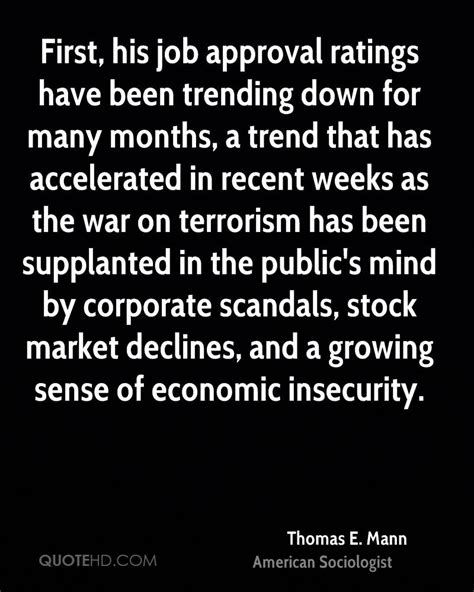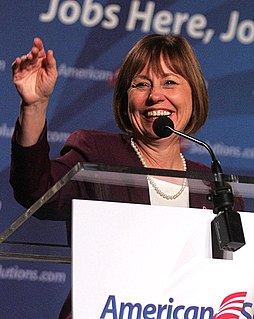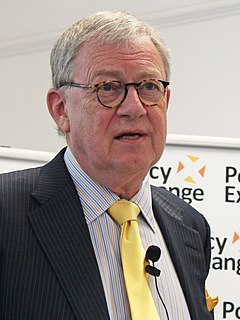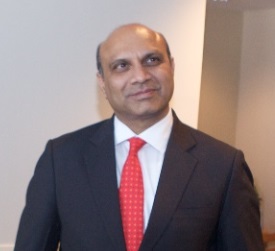A Quote by Rob McKenna
I recognize that as governor, my job is to sit on the other side of the table from the public sector unions and negotiate effectively on behalf of all the taxpayers of the state, including all of you.
Related Quotes
Private sector unionization is down to practically seven percent. Meanwhile the public sector unions have kind of sustained themselves [even] under attack, but in the last few years, there's been a sharp [increase in the] attack on public sector unions, which Barack Obama has participated in, in fact. When you freeze salaries of federal workers, that's equivalent to taxing public sector people.
This is something that Randi Weingarten said to me when I interviewed her once, which I think I quote in chapter nine. She talks about how only 7 percent of private sector workers in the American economy are in unions. So all the protections that teachers have that are due to collective bargaining - including generous pensions, generous health plans, limits to what they can be asked to do after school and in the summers - all of those things are sources of resentment to the public. And I think that politicians have played off of that quite effectively.
They said it was impossible to touch the third rail of politics, to take on public-sector unions and to reform a pension and health benefits system that was headed to bankruptcy. But with bipartisan leadership, we saved taxpayers $132 billion dollars over 30 years and saved retirees their pensions. We did it.
People ask me, "What are you going to do to develop jobs in your state?" Well, that's not my job as a US senator to bring industry to the state. That's the lieutenant governor's job, that's your state senators' and assemblymen's job. That's your secretary of state's job, to make a climate in the state that says, 'Y'all come.'
Follow the money, Washington reporters like to say. The money is this case comes from taxpayers, present and future, who are the source of every penny of dues paid to public employee unions, who in turn spend much of that money on politics, almost all of it for Democrats. In effect, public employee unions are a mechanism by which every taxpayer is forced to fund the Democratic Party.
70 to 80 percent of country economy is controlled by the Bolivian state, and the other percentage by the private sector. We admit that it's legal, constitutional, that the private sector is entitled to its own economy, but to ensure these profound changes that clearly this government is promoting, including profound changes in the food industry, what we are doing is an important step.
